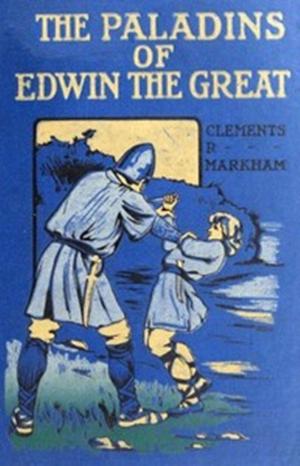The Life of George Fox
Founder of the Quakers
Biography & Memoir, Religious, Historical, Nonfiction, Religion & Spirituality, Christianity, Christian Life| Author: | Fox, George | ISBN: | 1230000303171 |
| Publisher: | Delmarva Publications, Inc. | Publication: | February 20, 2015 |
| Imprint: | Language: | English |
| Author: | Fox, George |
| ISBN: | 1230000303171 |
| Publisher: | Delmarva Publications, Inc. |
| Publication: | February 20, 2015 |
| Imprint: | |
| Language: | English |
George Fox (July 1624 – 13 January 1691) was an English Dissenter and a founder of the Religious Society of Friends, commonly known as the Quakers or Friends.
The son of a Leicestershire weaver, Fox lived in a time of great social upheaval and war. He rebelled against the religious and political authorities by proposing an unusual and uncompromising approach to the Christian faith. He travelled throughout Britain as a dissenting preacher, for which he was often persecuted by the authorities who disapproved of his beliefs.
Fox married Margaret Fell, the widow of one of his wealthier supporters; she was a leading Friend. His ministry expanded and he undertook tours of North America and the Low Countries, between which he was imprisoned for over a year. He spent the final decade of his life working in London to organize the expanding Quaker movement.
Though his movement attracted disdain from some, others such as William Penn and Oliver Cromwell viewed Fox with respect.
Fox's influence on the Society of Friends was of course tremendous, and his beliefs have largely been carried forward by that group. Perhaps his most significant achievement, other than his predominant influence in the early movement, was his leadership in overcoming the twin challenges of government prosecution after the Restoration and internal disputes that threatened its stability during the same period. Not all of his beliefs were welcome to all Quakers: his Puritan-like opposition to the arts[64] and rejection of theological study, forestalled development of these practices among Quakers for some time.
Many Christians can relate to Fox's religious experience, and even those who disagree with him regard him as a pioneer, a powerful and stimulating influence on laity and clergy alike.
George Fox (July 1624 – 13 January 1691) was an English Dissenter and a founder of the Religious Society of Friends, commonly known as the Quakers or Friends.
The son of a Leicestershire weaver, Fox lived in a time of great social upheaval and war. He rebelled against the religious and political authorities by proposing an unusual and uncompromising approach to the Christian faith. He travelled throughout Britain as a dissenting preacher, for which he was often persecuted by the authorities who disapproved of his beliefs.
Fox married Margaret Fell, the widow of one of his wealthier supporters; she was a leading Friend. His ministry expanded and he undertook tours of North America and the Low Countries, between which he was imprisoned for over a year. He spent the final decade of his life working in London to organize the expanding Quaker movement.
Though his movement attracted disdain from some, others such as William Penn and Oliver Cromwell viewed Fox with respect.
Fox's influence on the Society of Friends was of course tremendous, and his beliefs have largely been carried forward by that group. Perhaps his most significant achievement, other than his predominant influence in the early movement, was his leadership in overcoming the twin challenges of government prosecution after the Restoration and internal disputes that threatened its stability during the same period. Not all of his beliefs were welcome to all Quakers: his Puritan-like opposition to the arts[64] and rejection of theological study, forestalled development of these practices among Quakers for some time.
Many Christians can relate to Fox's religious experience, and even those who disagree with him regard him as a pioneer, a powerful and stimulating influence on laity and clergy alike.















